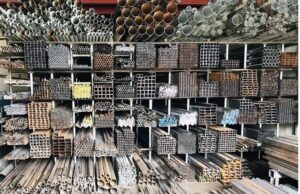How to setup steel trading company in usa?
Setting up a steel trading company in the United States involves several steps. Here is a general overview of the process:
- Choose a business structure: Decide whether you want to set up your steel trading company as a sole proprietorship, partnership, LLC, or corporation. Each structure has its own advantages and disadvantages, so it’s important to choose the one that best fits your needs.
- Obtain any necessary licenses and permits: Depending on the state and local laws where your business is located, you may need to obtain licenses and permits before you can start operating your steel trading company.
- Register your business: Register your steel trading company with the appropriate state and local government agencies. This will typically involve filing articles of incorporation or a similar document and paying any required fees.
- Open a business bank account: Open a separate bank account for your steel trading company. This will help you to keep your personal and business finances separate and make it easier to track your income and expenses.
- Create a business plan: Develop a business plan outlining your company’s goals, strategies, and financial projections. This will help you to secure funding, if needed, and ensure that your business is on the right track.
- Establish relationships with suppliers and customers:Identify steel suppliers and customers and start building relationships with them.
- Keep accurate financial records: Keep accurate records of all of your income and expenses. This will help you to stay on top of your finances and make informed business decisions.
Please note that this is a general overview and specific requirement varies state by state so it is important to consult with a lawyer and accountant for legal and financial advice, regarding tax obligation and compliance with local laws before setting up your company.
what You should know about product for steel trading

If you’re planning to start a steel trading company, it’s important to have a good understanding of the products you’ll be trading and the market for those products. Here are a few things you should know about steel products:
- Types of steel: There are many different types of steel, each with its own properties and uses. Some common types of steel include carbon steel, alloy steel, stainless steel, and tool steel. It’s important to understand the differences between these types of steel and their uses in different industries.
- Grades of steel: Within each type of steel, there are different grades or levels of quality. The grades of steel are determined by the chemical composition and the manufacturing process used to make them. Knowing the grades of steel will allow you to better understand the quality and value of the steel products you’re trading.
- Standards and specifications: Different industries have different standards and specifications for steel products. It is important to understand these standards and specifications so that you can ensure that the steel products you’re trading meet the requirements of your customers.
- Market trends: Understanding market trends is essential for successful steel trading. It is important to stay informed about global and local trends in steel production, consumption, prices, and demand to make good decisions about buying and selling steel products.
- Competitors: Knowing your competitors and their strategies can help you to better position your company in the market. Knowing their strengths and weaknesses, and the quality of the products they sell, can help you to identify opportunities to differentiate your own business and gain an advantage.
- Relationships with supplier and manufacturers: Building good relationships with your suppliers and manufacturers will be essential for your business. They will help you understand the latest product developments, pricing trends, and logistics and delivery requirements.
It is also important to note that steel is a global commodity, so being aware of global trade regulations, tariffs and embargoes is crucial to make your trading business successful. You Can Read my previous post Steel Guide
Thanks for Taking time
Comments are closed.